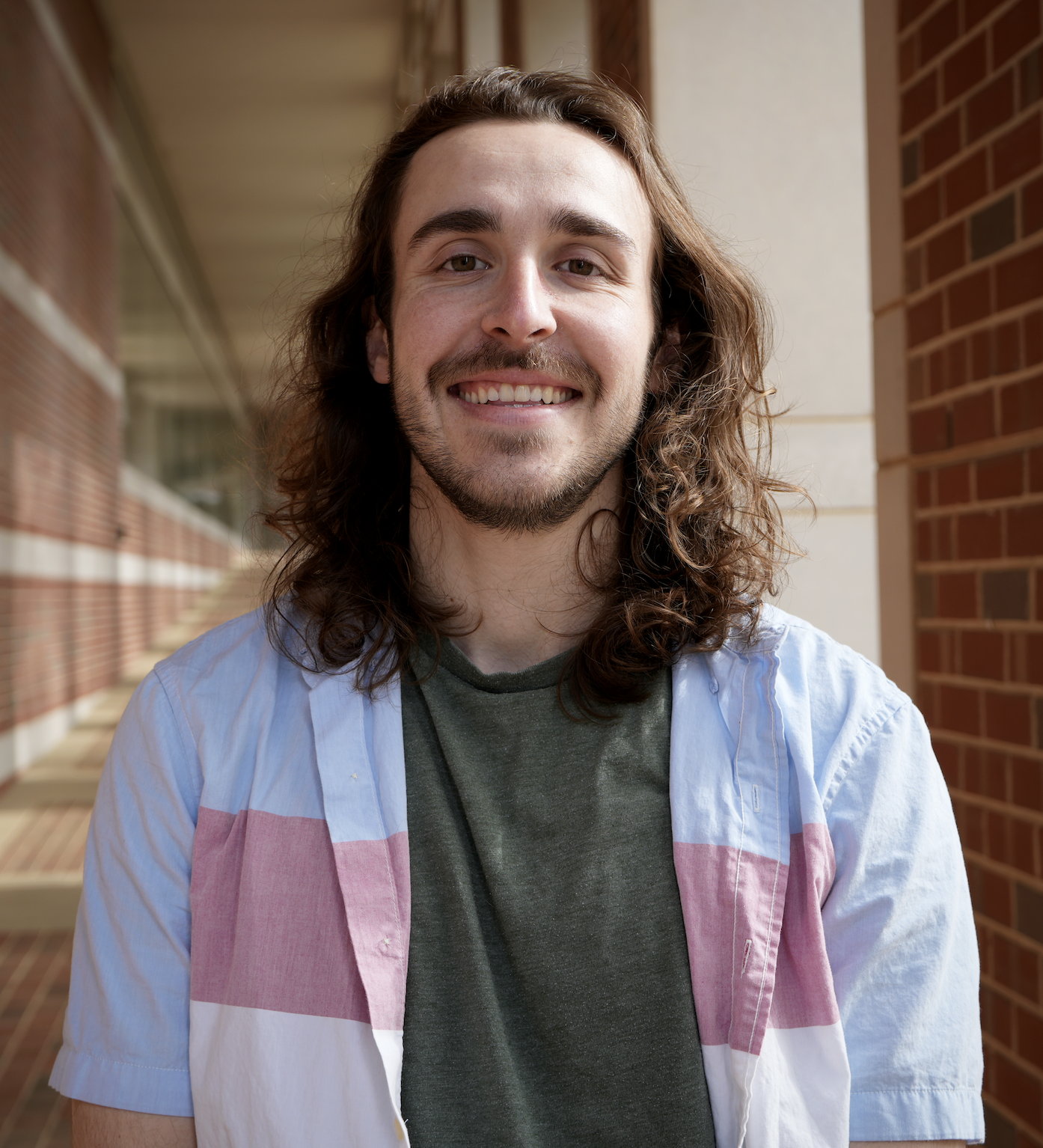
Ph.D. student Jack Turicek, advised by CCEE Assistant Professor Jason Patrick, was selected for a 2023 National Science Foundation (NSF) Graduate Research Fellowship. The fellowship recognizes outstanding graduate students who are pursuing research-based master’s and doctoral degrees in NSF-supported science, technology, engineering, and mathematics (STEM) disciplines.
Turicek said he was excited to learn he received the award.
“I know sometimes when a big event happens, it takes a couple days to sink in. But this time, it hit me right away,” he said. “I just knew what this would mean for my career and I’m very thankful for the award.”
The main research the fellowship will support is Turicek’s work on developing a synthetic material that replicates biological materials found in nature.
“Specifically, I will be creating a fiber-reinforced composite that is able to self-heal damage when it occurs and also regulate its temperature with both active heating and cooling systems. The inspiration comes from biomaterials like those in our bodies that can heal when we get cut or break a bone and can also regulate temperature in different environments.”
Turicek, who is a mechanical and aerospace engineering student, said the work he does in Patrick’s lab has use cases across civil, mechanical and other engineering disciplines.
“Broadly, we work to design, characterize, and deploy smart materials that have multiple functions,” he said.” For example, if we can create an airplane wing out of a material that is able to modulate its temperature, the wing can function to both lift the plane off the ground and also to de-ice itself during flight. Other more civil engineering related applications are constructing wind turbine blades or even bridge components out of these same multifunctional composites. Furthermore, we explore materials that can both self-heal damage but also sense and alert when damage occurs, and even reconfigure electromagnetic signature in addition to their regular structural functions.”
“Being chosen as an NSF Graduate Research Fellow is a significant national accomplishment and places you among an elite group of Fellows, many of whom have gone on to distinguished careers in STEM or STEM education,” said Jacqueline Huntoon, division director of the Division of Graduate Education at NSF, in a notification letter to Turicek. “We wish you similar success in your graduate studies and continued progress toward your aspirations throughout your career.”
